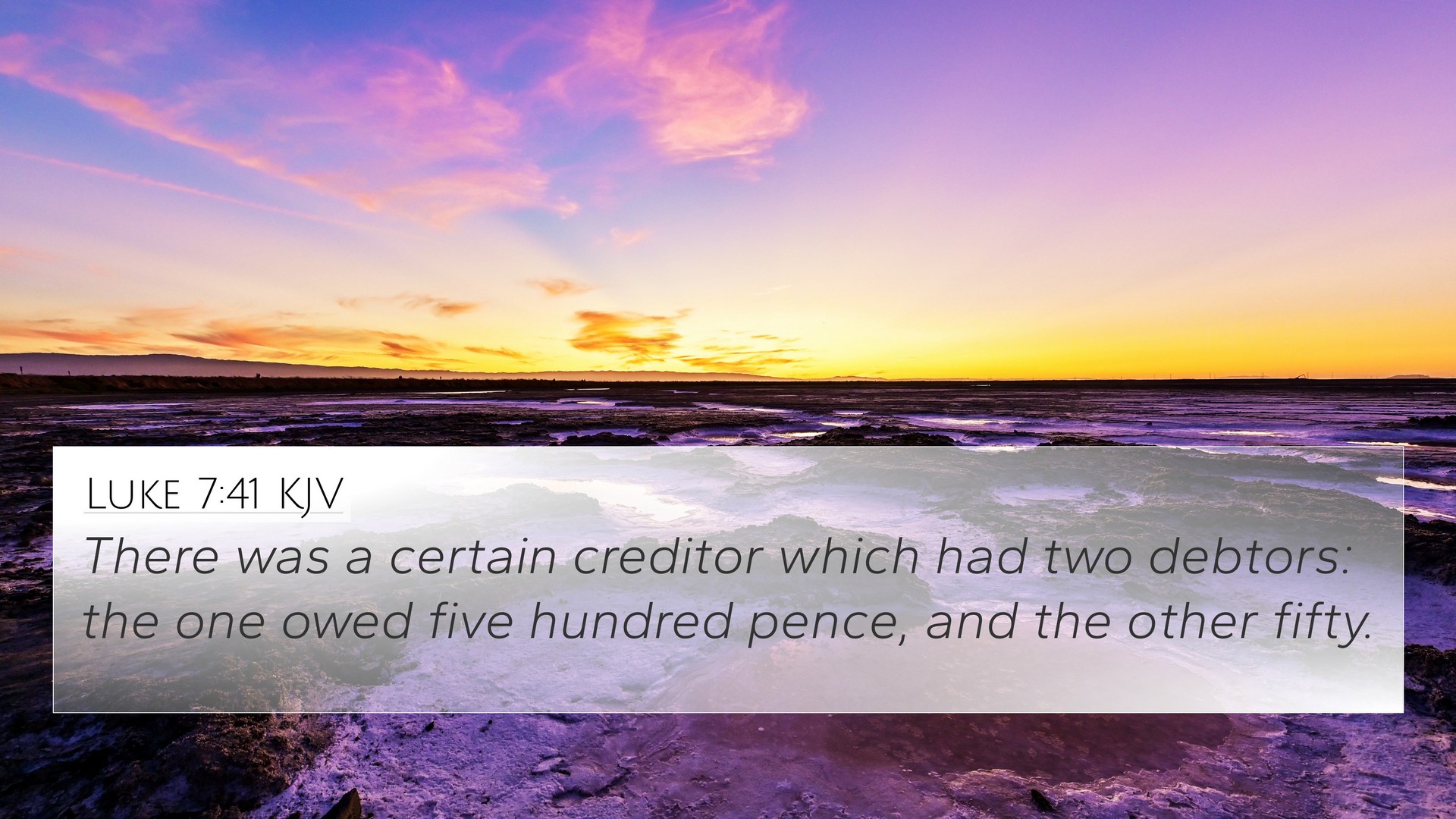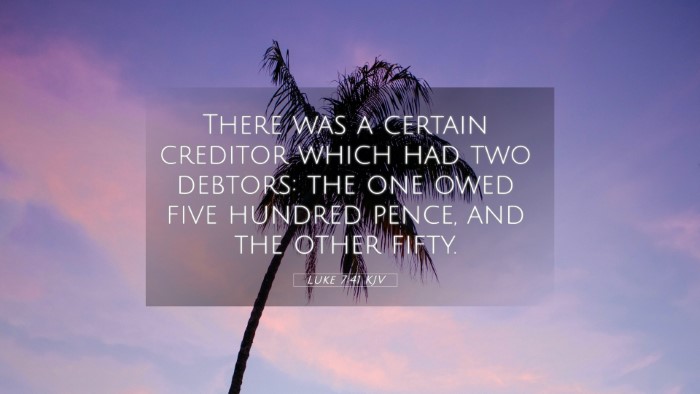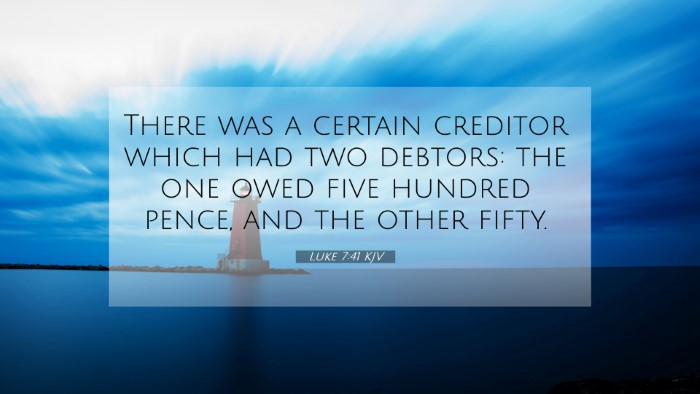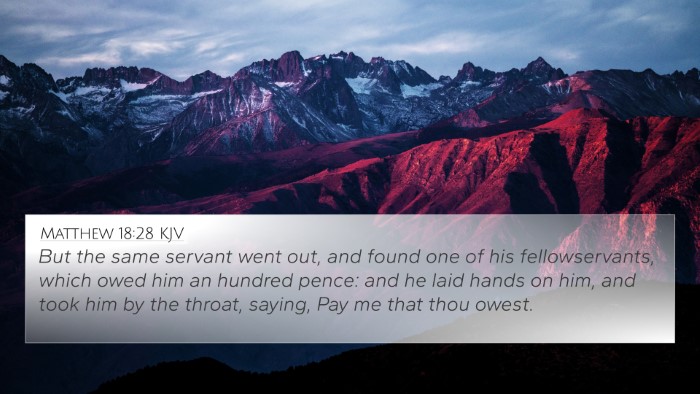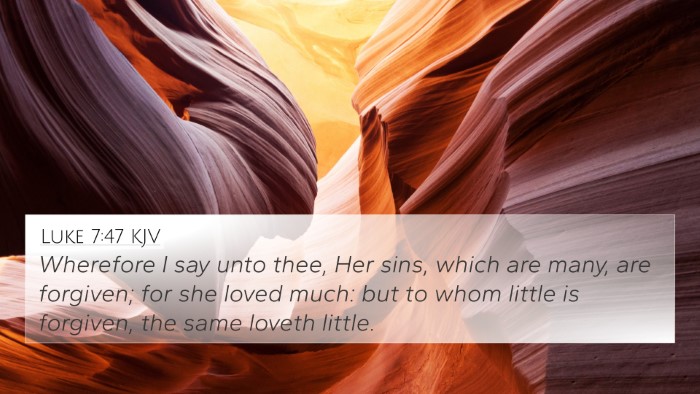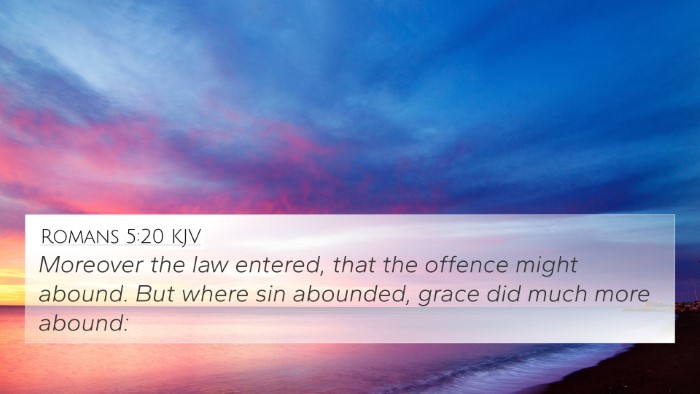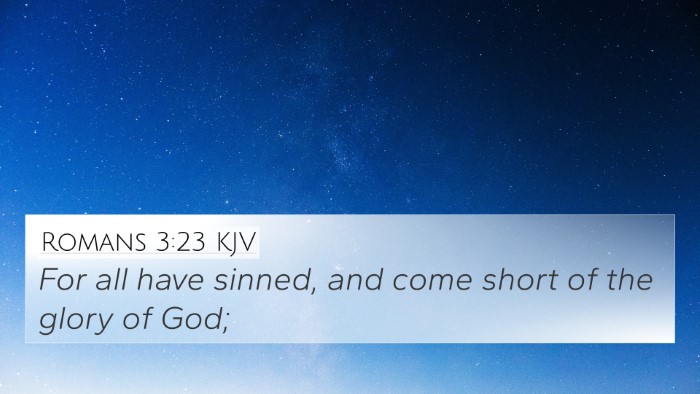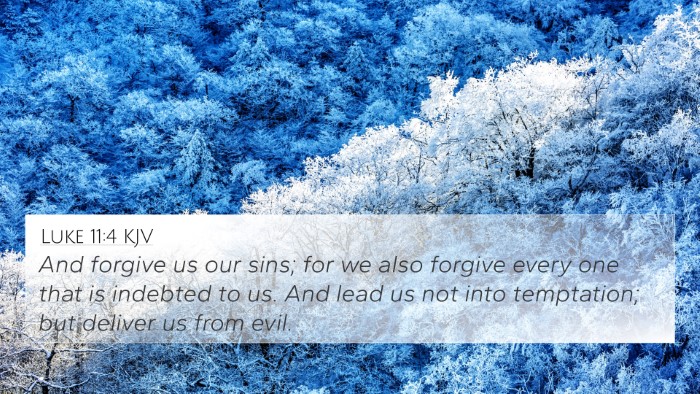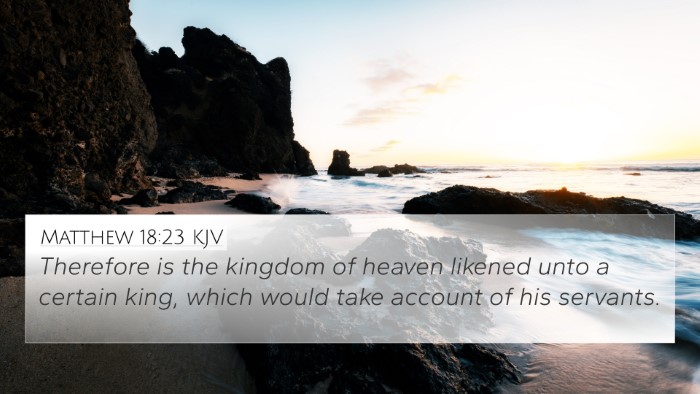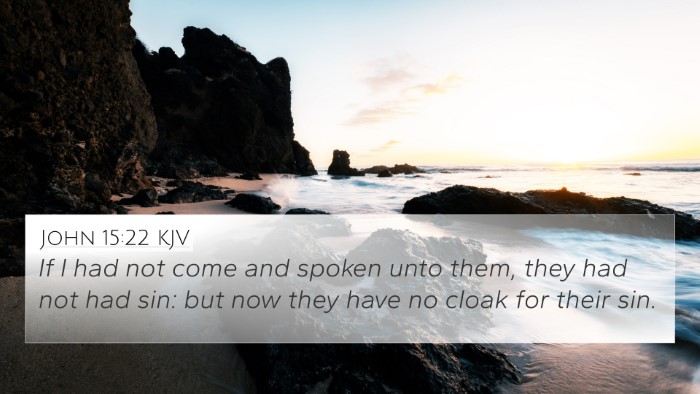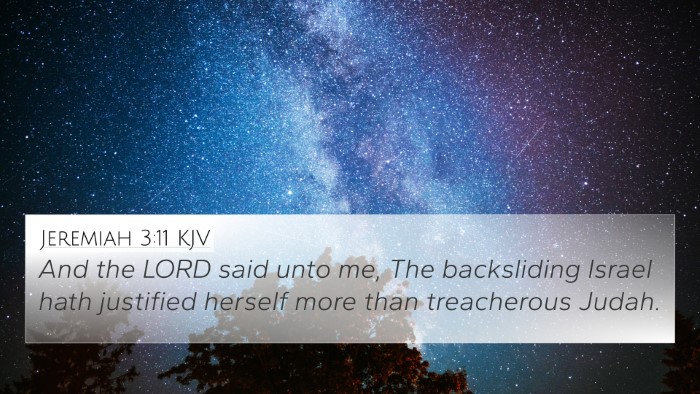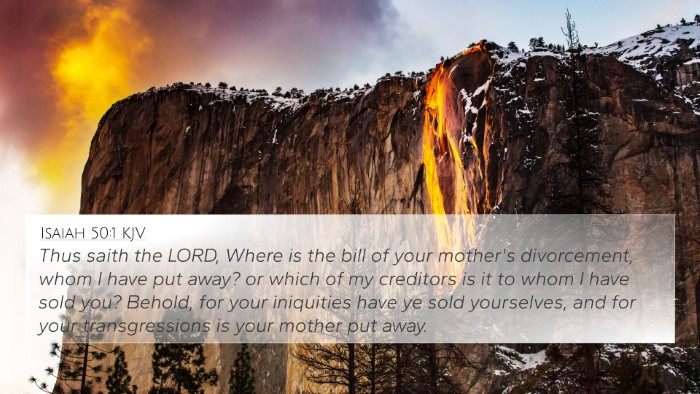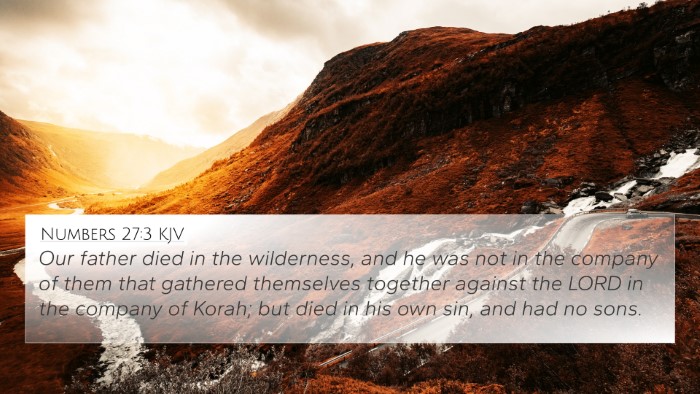Understanding Luke 7:41
Luke 7:41 states, "There was a certain creditor which had two debtors: the one owed five hundred pence, and the other fifty." This verse introduces a parable spoken by Jesus, which serves to highlight themes of forgiveness and gratitude.
Summary of Context
This parable was told in the context of Jesus dining with Simon the Pharisee, who was critical of Jesus's association with a sinful woman. The parable effectively illustrates the concepts of sin, forgiveness, and the resultant love and devotion that flows from a sense of gratitude for forgiveness received.
Analysis of Key Themes
- Debt as a Metaphor: The debts represented in the parable symbolize the sins people owe to God. This is significant as it brings to light the varying degrees of sin and the necessity of forgiveness.
- Forgiveness: The disparity between the amounts owed serves to set up a comparison of the depth of gratitude that comes from being forgiven. The more one is forgiven, the greater one's love should be.
- Comparison and Contrast: Jesus uses the two debtors to illustrate that even those with seemingly lesser sins (the one who owed fifty) can experience significant forgiveness.
Public Domain Commentaries Insights
Here is an amalgamation of insights from notable public domain commentaries:
- Matthew Henry: Henry emphasizes the importance of recognizing one's debt of sin and the joy of forgiveness. He indicates that the one who is forgiven much can love much, implying a direct correlation between acknowledgment of sin and the degree of love expressed.
- Albert Barnes: Barnes notes that the parable is aimed at the self-righteous. He asserts that those who see themselves as less in need of forgiveness often love less. He insists that true understanding of one’s sinful state leads to greater affection toward Christ.
- Adam Clarke: Clarke highlights the societal implications of debts, where a creditor represents God, and the debtors denote individuals who owe a moral debt. His analysis shows that the differing amounts illustrate how divided human experiences of sin and forgiveness are.
Cross References and Related Verses
Luke 7:41 connects with several other scriptures that offer deeper insight into themes of sin and forgiveness:
- Matthew 18:23-35: The Parable of the Unforgiving Servant reinforces the idea of forgiveness and the consequences of failing to forgive others.
- Luke 15:11-32: The Parable of the Prodigal Son illustrates themes of repentance and the joy that follows forgiveness.
- John 8:7: Jesus's statement, "He that is without sin among you, let him first cast a stone at her", emphasizes understanding our own need for mercy.
- Romans 3:23-24: This passage states that all have sinned but can be justified freely by God’s grace, connecting to the ideas of debts and forgiveness.
- Ephesians 4:32: Paul advises to be kind and tender-hearted, forgiving one another, as God forgave us, mirroring the lesson from the debtors.
- Colossians 3:13: Similar to Ephesians, this verse urges believers to forgive as they have been forgiven, reinforcing the relational aspect of forgiveness.
- 1 John 1:9: It declares that if we confess our sins, God is faithful to forgive us, providing insight into the divine aspect of forgiveness that Luke 7:41 points toward.
Conclusions and Reflections
This verse encapsulates deep spiritual truths about human nature, the gravity of sin, and the richness of divine forgiveness. Through parallel passages, it underscores the importance of love in response to grace.
Inter-Biblical Dialogue: The connections between Bible verses such as those mentioned are vital for a comprehensive understanding of Biblical themes. By examining these relationships, believers can gain insights into how forgiving one another mirrors the divine forgiveness they have received.
Practical Applications
As you study Luke 7:41 and its related verses, consider the following:
- Reflect on the debts in your life—both those you owe God and those owed to you.
- Engage in self-examination to understand the depth of God's forgiveness in your life.
- Practice forgiveness, recalling how much you have been forgiven by God.
This structured approach to understanding Luke 7:41 through cross-referencing various scriptures enhances the overall comprehension of Biblical teachings on forgiveness and love.
